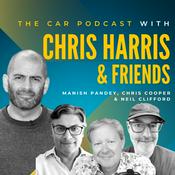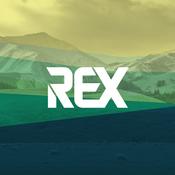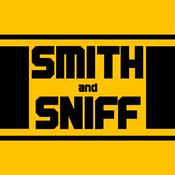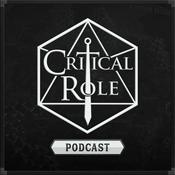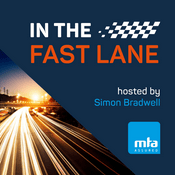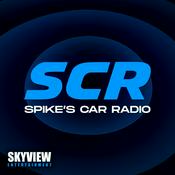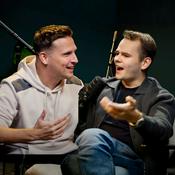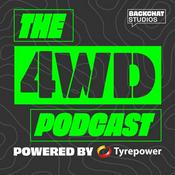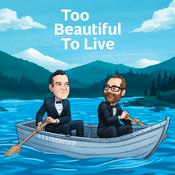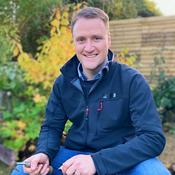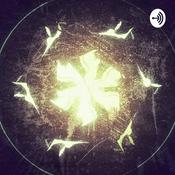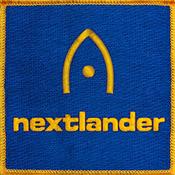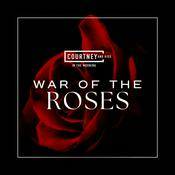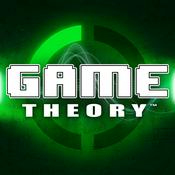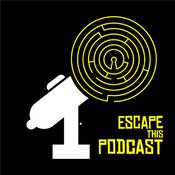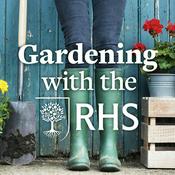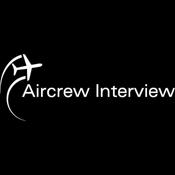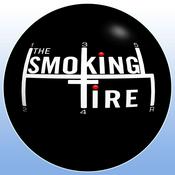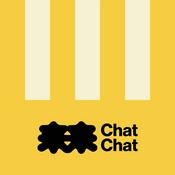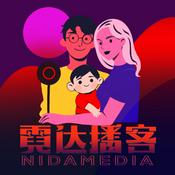11 episodes

Store and Forward episode 13 — Steve’s Adventures at Hamvention 2025
30/5/2025 | 48 mins.
Video version of this episode: https://youtu.be/1BG-YfcXe_I Digital Library of Amateur Radio & Communications (a project of the Internet Archive): https://archive.org/details/dlarc Zero Retries Newsletter: https://www.zeroretries.org Amateur Radio Digital Communications: https://www.ardc.net GNU Radio Conference 2025: https://events.gnuradio.org/event/26/ Zero Retries Digital Conference 2025: https://www.zeroretries.org/p/conference IP400 Network Project: https://adrcs.org/adrcs/ip400-network-project/ Hamvention: https://hamvention.org Steve discussed his top few items of interest at the Hamvention 2025 in Xenia, Ohio a week ago. He wrote about his Hamvention Experience in Zero Retries 0203 – https://www.zeroretries.org/p/zero-retries-0203. Steve was really impressed with FlexRadio’s new Aurora unit which incorporates an HF radio, 500 watt amplifier, antenna tuner, and power supply all in one unit. Aurora is so power-efficient that it can be used with a (US) standard 120 volt 15 amp power circuit. https://edge.flexradio.com/www/offload/20250515182542/FlexRadio-Aurora-Brochure.pdf Steve was equally impressed with FreeDV’s Radio Autoencoder (RADE) digital voice system for HF. At Hamvention, RADE is open source and was demonstrated as having been ported from running on a modern Windows PC to running on a Raspberry Pi 5. https://freedv.org/radio-autoencoder/ Steve’s other mentions about Hamvention in this episode include Rhizomatica open source Mercury Radio Modem Software – https://github.com/Rhizomatica/mercury, and the Kenwood TM-D750A Mobile “Data” Radio (https://www.dxengineering.com/parts/rsv-tm-d750a – apologies, best info link I could find). Steve was really impressed with the Timebot (aka, Virtual Time Nut) AI project bounded to multiple decades of material on “Time Nuts”, created by John Ackermann N8UR. See Steve’s writeup in Zero Retries 0203 – https://www.zeroretries.org/i/163245188/timebot-aka-virtual-time-nut. Kay discussed his ramping up DLARC activities, such adding Wireless Institute of Australia’s Amateur Radio Magazine, from its start in 1933 through 2012 – https://archive.org/details/wia_amateur_radio?sort=date Another significant addition to DLARC, which will require some help to fully annotate with metadata is the archives donated by Hank Magnuski KA6M – https://archive.org/details/dlarc?tab=collection&query=col_number%3A3990&sort=-addeddate Hank’s archives include correspondence about the creation of Amateur Radio Packet Radio – the beginnings of the AX.25 protocol. Hank is also known for creating the first Amateur Radio Packet Radio digipeater – http://pprs.org and being the person to request the 44 Class A address space that was the basis of what is now Amateur Radio Digital Communications (ARDC) – https://www.ardc.net/about/faq/ and see How did ARDC get started? Steve and Kay discussed Kay’s work in unearthing many documents about Alohanet – https://en.wikipedia.org/wiki/ALOHAnet. Thanks to some interesting mentions on obscure email lists, Kay has found a lot of material on this first combination of packet networking and radio that predates much of the Internet. None of the material Kay has been finding has ever been online previously.

Store and Forward episode 12 — Big Plans
30/4/2025 | 50 mins.
The video version of this episode is at: https://youtu.be/h6__7kv8zjk Digital Library of Amateur Radio & Communications (a project of the Internet Archive): https://archive.org/details/dlarc Zero Retries Newsletter: https://www.zeroretries.org Amateur Radio Digital Communications: https://www.ardc.net GNU Radio Conference 2025: https://events.gnuradio.org/event/26/ Zero Retries Digital Conference 2025: https://www.zeroretries.org/p/conference IP400 Network Project: https://adrcs.org/adrcs/ip400-network-project/ Hamvention: https://hamvention.org The big news of this episode is that Internet Archive received a second grant from Amateur Radio Digital Communications (ARDC) to enable DLARC to continue for an additional two years. There is already a queue of scanning work to be done, and digital material to be added. Steve observed that “all the infrastructure, systems, and relationships” are in place to make even more progress with this second grant. Kay discussed the addition of 32 Amateur Radio Callbooks to the Callbook section, bringing the total to nearly 150. These books, dating back to the 19th century, provide valuable information on Amateur Radio callsigns, addresses, and names. Kay also shared their discovery of old floppy disks containing software and meeting minutes from the Northwest Amateur Packet Radio Association (NAPRA). Of interest to Steve, Kay mentioned packet radio software WA7MBL MailBox V2.04. It’s an DOS work-alike of the W0RLI MailBox software (which originated on CP/M systems, and was later ported to DOS). There’s PBBS – Packet Bulletin Board System published by the Wake Digital Communications Group in 1985. And, meeting minutes from the Northwest Amateur Packet Radio Association for 1990-1991. If NARPA seems familiar, maybe it’s because they published a newsletter called Zero Retries. NAPRA’s Zero Retries newsletter was the origin of Steve’s use of Zero Retries, since NAPRA is long defunct. Steve’s looking forward to looking over those additional issues of Zero Retries (he contributed a number of paper copies). This episode encompasses Zero Retries issues 0193 thru 0198. Steve discusses he and his wife Tina (KD7WSF) attendance at HamSCI 2025 conference in Newark, NJ in March. In addition to publishing Zero Retries every Friday, Steve has stayed busy in the past month or so replying to FCC Requests for Comments. Steve discussed his new perspective that Software Defined Radio is THE Imperative for US Amateur Radio. He also discussed his “deja vu – flashback” from two decades ago when a black box data radio was first discussed by his advanced packet radio co-conspirators in the Seattle area. Steve and Tina are now volunteers for the GNU Radio Conference (GRCon) which will be held in Everett, WA this year from September 8-12. In addition to GRCon 2025, Tina and Steve have decided to start their own Zero Retries Digital Conference (ZRDC) to be held on Saturday, September 13, 2025 at the same venue as GRCon. The two conferences are independent of each other. Steve is also deeply involved in the development of the IP400 Network Project, and he discusses IP400 a bit. There will be a major announcement regarding IP400 in Zero Retries 0200, which will publish on May 2, 2025. Steve is looking forward to attending Hamvention 2025 in Xenia, OH on May 16-18. Because of his Editorship of Zero Retries, Steve has been granted media access so will be able to interview vendors before the conference on Thursday May 15th for stories in Zero Retries. Listen for some exciting “reveals” of both new additions to DLARC now that DLARC acquisition and archiving is ramping back up, and stories from Hamvention in the next episode of Store & Forward.

Store and Forward episode 11 — Backing up the FCC
06/3/2025 | 42 mins.
The video version of this episode is at: https://youtu.be/4usXx128IME Digital Library of Amateur Radio & Communications (a project of the Internet Archive): https://archive.org/details/dlarc Zero Retries Newsletter: https://www.zeroretries.org DLARC (and Kay personally) got some nice accolades (along with the Internet Archive in general) on Ham Radio Workbench podcast episode 229 by the hosts and the ARDC personnel who were guests on that episode. https://www.hamradioworkbench.com/podcast/hrwb-229-all-about-44-net-and-the-ardc Kay discussed the current project of DLARC is to archive YouTube videos and other media of the Federal Communications Commission (FCC) – https://archive.org/details/fcc-videos. As with every change of US presidential administration and corresponding emphasis in US government agencies, priorities are changing at the FCC, and some media may be removed. In addition to the FCC YouTube videos, DLARC is also archiving the FCC Daily Digest. Steve reported that Zero Retries now has 2500+ email subscribers, and Substack recently declared him a “Substack bestseller” because Zero Retries now has more than 100 paid subscribers. Steve talked about Wi-Fi Sensing Array (ZR 0190) demonstration https://www.youtube.com/watch?v=sXwDrcd1t-E that really shows how directional antennas, attenuation, reflections, etc. While that wasn’t the primary intent of the demo, it was really impressive. Steve will be attending the HamSCI 2025 conference https://hamsci.org/hamsci2025 in Newark, New Jersey on Friday March 14, and Saturday March 15: This year’s theme, “HamSCI’s Big Year,” celebrates the community’s achievements, including the Festivals of Eclipse Ionospheric Science (FOEIS) during the 2023 annular and 2024 total solar eclipses. The workshop features nearly 50 poster and oral presentations, four HamSCI tutorials, and a keynote address by ARRL’s Bob Inderbitzen (NQ1R) at the HamSCI Banquet on Friday March 14th.

Store and Forward episode 10 — Back to Work in 2025
13/1/2025 | 1h
The video version of this episode is at: https://youtu.be/jLnpy3yQJHE Digital Library of Amateur Radio & Communications (a project of the Internet Archive): https://archive.org/details/dlarc Zero Retries Newsletter: https://www.zeroretries.org Not mentioned on this podcast, but Kay recently did a presentation to RATPAC titled DLARC – The Free Online Ham Radio Library which is a great overview of the wide range of Amateur Radio (and other) material available in DLARC. Kay discussed some interesting and specialized Amateur Radio newsletters recently added to DLARC including: Amateur Television in Central Ohio (ATCO) – https://archive.org/details/atco-newsletter 425 DX News – https://archive.org/details/425-dx-news What’s notable is that it has been published every Saturday since beginning publication… in 1991! (As a fellow newsletter publisher, Steve admired that level of dedication!) DX World Weekly Bulletin – https://archive.org/details/dx-world … and this historical magazine: The Telegraphic Journal and Electrical Review – https://archive.org/details/pub_the-telegraphic-journal-and-electrical-review Steve said he was pretty sure he had seen a collection of this magazine just yesterday as he was picking up some magazines at the Bellingham (Washington) Spark Museum of Electrical Invention – https://www.sparkmuseum.org. Steve discussed a bit of the backstory of his fiction story in Zero Retries 0183 – https://www.zeroretries.org/p/zero-retries-0183 – Paying it Forward in Amateur Radio about a conversation between Jennifer, a young techie Amateur Radio Operator and Jada, a young woman in her teens about Jennifer’s Amateur Radio activities. Steve then discussed a few of the items mentioned in Zero Retries 0184 – https://www.zeroretries.org/p/zero-retries-0184: zBitx portable HF radio – 5 watts, Software Defined Radio, for $149 – https://www.hfsignals.com/index.php/zbitx/ SignalSDR Pro – Software Defined Transceiver with 2 TX and 2 RX for $900 – https://www.crowdsupply.com/signalens/signalsdr-pro KV4P-HT (Kit Available from Halibut Electronics) – Open source project of a “strap on VHF radio” for Android phones – https://electronics.halibut.com/product/kv4p-ht-v2/ Steve went on to discuss the recent unveiling of NVIDIA’s Project Digits which is a “1 petaflop desktop computer” and the potential for him to “talk to his desktop AI” (that would be running on a Project Digits computer) to develop a fantasized future radio system. This combination would be the equivalent of having a full time software engineer writing GNU Radio code, and Steve just uses the output of the AI in GNU Radio, tries it out, notes what works and doesn’t work, inputs that back into the AI. Kay said that he would love to “browse” various digital modes automatically, and Steve said that we’re close to that, including: DragonOS – https://sourceforge.net/p/dragonos-focal/wiki/OriginStory/ KiwiSDR – https://kiwisdr.nz/blogs/news/about-kiwisdr-radios Signal Identification Wiki – https://www.sigidwiki.com/wiki/Signal_Identification_Guide Radios are computers – with antennas! We keep having more and more (cheap) computing power to throw at radio communications! As an example of how abundant computer power can make a difference in (Amateur Radio) radio technology, Steve discussed the innovation of “bit flip testing and correction” that John Langner WB2OSZ implemented in Dire Wolf Software TNC – https://github.com/wb2osz/direwolf. See this presentation by WB2OSZ – https://archive.org/details/direwolf-software-tnc. Kay joked: If you can flip one bit and figure out what the packet is based from the CRC. Why transmit the packet at all? Just transmit the CRC and figure out what the packet should have been? Steve said “we’re close to that”, but couldn’t recall the details during the podcast of what a Zero Retries reader mentioned in a comment that was a similar capability to what Key described. Post-podcast: In the comments of Zero Retries 0179, https://www.zeroretries.org/p/zero-retries-0179/comments, Louis Mamakos WA3YMH said: Just a thought on multicast file distribution systems. There is a class of algorithms called erasure codes (https://en.wikipedia.org/wiki/Erasure_code) that take some chunk of data, run a transformation on it to break it up into blocks (the total size somewhat more than original.) Then a receiver need only receive K out of N blocks that were produced by the encoding algorithm to compute the original data. This sort of thing is used at small scale with Reed-Soloman coding and at large scale for storing files. Professionally, we used a product like this which would ingest files, generate blocks that were then stored at multiple geographically dispersed locations. By tuning K and N, you would get disaster recovery and the system overall in managing all the metadata was very scalable. The application for amateur radio beacons and the like is to just transmit blocks and the receiver can start receiving them at any time and eventually reconstruct the original object. Some research reveals some commercial work for such a thing to be deployed on unidirectional broadcast satellite links where a reverse channel to ask for “fills” wasn’t available. Missing a block means you don’t have to wait for that one block to be retransmitted to you much later; you might still reconstruct the object sooner. There appear to be some open-source libraries to do this encoding and decoding computation and that would then need a UI and data transport interface wrapped around it. This sounds like a great opportunity to combine ham radio and thesis work for the right person 🙂 Kay was prescient! 🙂 Kay concluded the podcast by saying that DLARC added 1.1M pages of material in 2024!

Store and Forward episode 9 — SuperPeater
11/12/2024 | 46 mins.
The video version of this episode is at: https://youtu.be/fpmh9S49Fis Digital Library of Amateur Radio & Communications (a project of the Internet Archive): https://archive.org/details/dlarc Zero Retries Newsletter: https://www.zeroretries.org Kay discussed the recent security issues at the Internet Archive, which is now 95% back to normal. Steve said that it’s been fun to see new material flowing into DLARC, which he sees from DLARC’s RSS feed: http://archive.org/services/collection-rss.php?collection=dlarc Kay discussed two of the most recent collections added to DLARC from Japan and Russia: a recent project of archiving 600 episodes of a Japanese ham radio show called Ham’s Radio: https://archive.org/details/hams-radio-japan With no Japanese language skills, this particular archive was a challenge for Kay. Fortunately there was a related blog for the show, but it wasn’t a 1:1 blog entry for each episode, so Kay had to employ advanced “script ninja” skills to parse out just the blog posts related to episodes. WIth just the episode blog posts, Kay could then use Google Translate and other tools to understand the content. Kay also used ChatGPT’s API to translate the show notes into English. Steve expressed his excitement about the potential for real-time translation of Amateur Radio voice communications in the future, and mentioned the Radio Autoencoder project within the FreeDV project: https://freedv.org/radio-autoencoder Kay discussed the discovery of a vast body of work by a dedicated individual, Dexter Anderson, who had been translating Russian publications into English for decades. Translations of Russian Amateur Radio Publications 1981-2000: http://archive.org/details/russian-amateur-radio Dexter’s translations were not word-for-word but provided a summary of the articles. The conversation also touched on the broader meaning of the term “radio amateur” in the Soviet Union, with a significant portion of radio enthusiasts being passive listeners rather than active transmitters, as explained in the item Summary Translation of the Soviet Amateur Magazine “Radio” 1989-08: https://archive.org/details/summarytranslati00uns_84d/mode/1up Steve explained that similar to the “not just those who transmit” perspective of the Russian radio publications, he writes Zero Retries not just for those that are licensed Amateur Radio Operators, but also for those that are active in “Amateur Radio Adjacent” activities such as using unlicensed spectrum for experimentation. One such “Amateur Radio Adjacent” activity that Steve admires is SatNOGS: https://satnogs.org SatNOGS is Satellite Networked Open Source Ground Station and is a worldwide network of receive-only stations dedicated to receiving telemetry and other data from small low orbit, low powered, research satellites such as those that are conceived and constructed by university students. Such satellite builders have trouble actually conducting the research because their connectivity with their satellites from their location is only minutes per day at best. But SatNOGS stations around the world can also receive the transmissions from research satellites and relay what is received back to the satellite builders. A SatNOGS station can be as simple as a special antenna called an “Eggbeater” (omnidirectional, but focused towards the sky rather than the horizon), an inexpensive software defined receiver, an embedded computer such as a Raspberry Pi, custom software, and an Internet connection. Building a SatNOGS station makes a great STEM, Maker, or hacker project, especially if you live in a rural area and have a good Internet connection. Steve then segued mention of archival material in DLARC into a multi-issue project he’s working on in Zero Retries that will culminate in a concept he’s been working on that he’s calling a “SuperPeater”. In an article Steve wrote for the Internet Archive blog: https://blog.archive.org/2024/07/10/using-dlarc-amateur-radio-operators-are-resurrecting-technical-ideas-from-the-past-using-21st-century-tech/ … he mentioned one interesting project from past decades called a PACSAT (Packet Satellite). PACSAT’s can be thought of as “Flying Bulletin Board Systems” where a message or bulletin can be uploaded to a PACSAT in one part of its orbit, and downloaded on another part of its orbit. Several PACSATs were flown, and they worked pretty well. The key concept that unlike a typical Amateur Radio repeater (including data repeaters), a PACSAT featured multiple uplink channels and in the case of multiple simultaneous transmissions received on multiple inputs, a queuing system was used. There were many other innovative features of the PACSATs, including robust modulation methods. The connection between DLARC and Zero Retries is that all the archival information about PACSATs is in DLARC: https://archive.org/details/dlarc?tab=collection&query=pacsat 11 formal research / presentation papers presented at the Digital Communication Conferences 9 newsletter articles in the TAPR Packet Status Register newsletter Even a book – The PACSAT Beginner’s Guide What’s amazing to consider about PACSAT technology in the 2020s is that the PACSAT developers and engineers solved all the hard parts, and made it work, and proved it all out by flying multiple PACSATs. But, back then, they had to invent the technology, build custom hardware, build custom software, invent new algorithms and access protocols, etc. Now, all of that technology is easy, inexpensive, and off the shelf – mostly software running on existing hardware: Different modulation techniques that were tough in 1983, not so much now Multiple uplink channels, again tough in 1983, not so much now (ka9q-radio) Multiple inputs received – queueing (we have lots of RAM to buffer multiple inputs received simultaneously; 8 GB on a Raspberry Pi 5) Dedicated fast computers such as Raspberry Pi for running the dedicated digital processing software Multitasking operating systems (including, recently, realtime versions of Linux) And, in general, Software Defined Radios hardware Thus, imagine a terrestrial “SuperPeater” data repeater with its output on 222-225 MHz that transmits at perhaps as fast as 38400 bps in a standard repeater channel. Receiving that data stream can be received with an inexpensive Software Defined Receiver and modem software. There could be multiple input channels to the SuperPeater including on 144-148 MHz and 440-450 MHz, with various data speeds / modem types on multiple channels. The SuperPeater can queue what it receives on each channel and output it all, queued, on the high speed output channel. As Steve envisions a SuperPeater, it’s mostly a “simple matter of software” 😀 Read the December 2024 issue of Zero Retries for more detail about Steve’s SuperPeater concept.
More Leisure podcasts
Trending Leisure podcasts
About Store and Forward
Listen to Store and Forward, The Car Podcast with Chris Harris & Friends and many other podcasts from around the world with the radio.net app
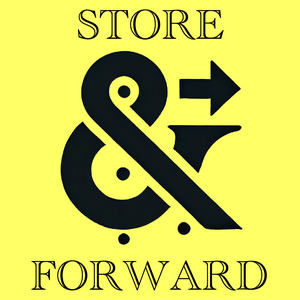
Get the free radio.net app
- Stations and podcasts to bookmark
- Stream via Wi-Fi or Bluetooth
- Supports Carplay & Android Auto
- Many other app features
Get the free radio.net app
- Stations and podcasts to bookmark
- Stream via Wi-Fi or Bluetooth
- Supports Carplay & Android Auto
- Many other app features


Store and Forward
download the app,
start listening.
